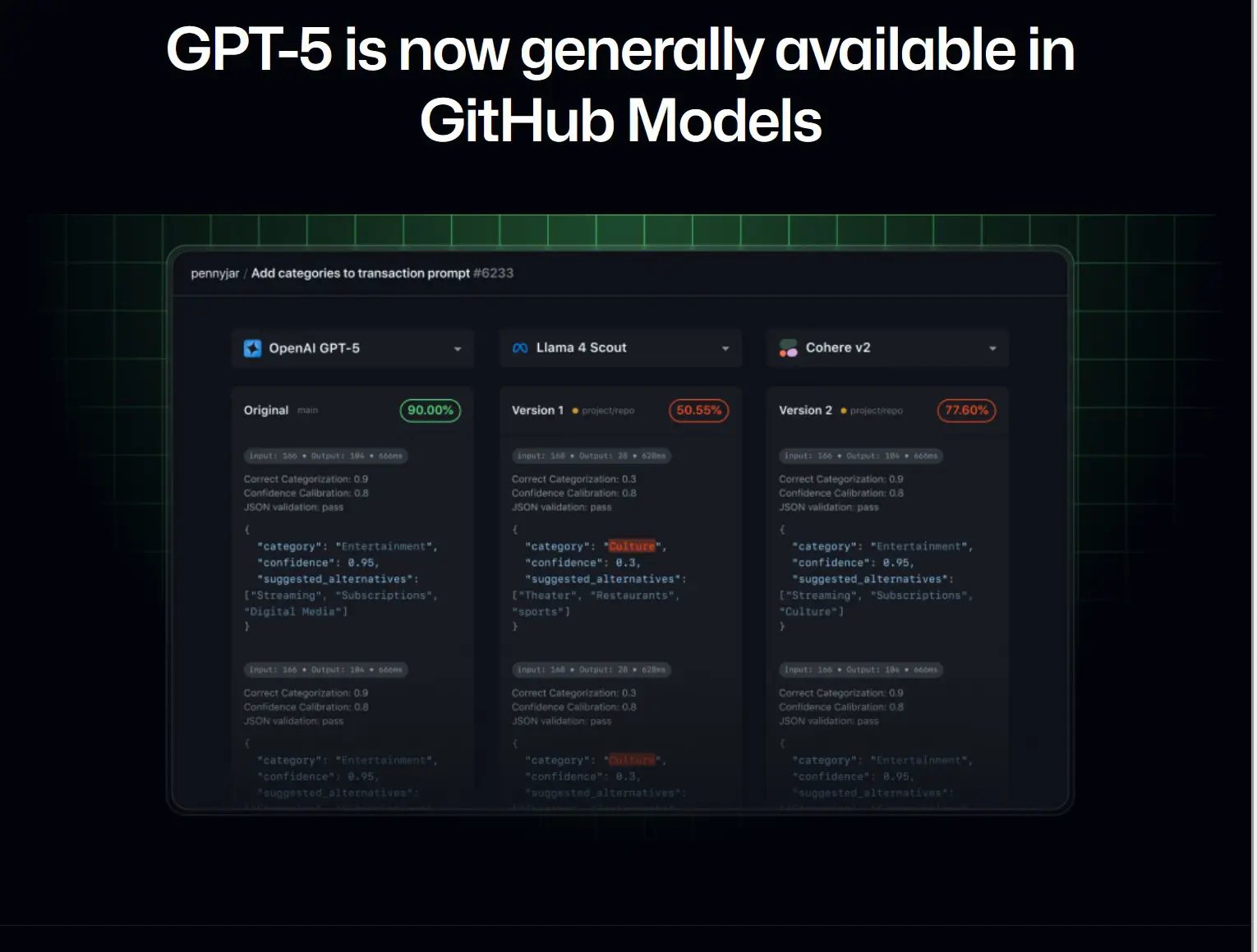Did GitHub steal the spotlight from OpenAI with GPT-5? In a (deleted) blog post, GitHub announces the latest OpenAI models.
The long-awaited launch of OpenAI’s GPT-5 model is likely to take place tonight. Around 7 PM Central European Time, the company will hold a livestream. Ever since 2023, there has been much speculation about the announcement of GPT-5, but during all this time, OpenAI has kept us in suspense by stretching the GPT-4 model as long as possible.
read also
ChatGPT Crushes Other Chatbots (in Market Share)
The launch party may have already been spoiled by GitHub. The development platform shared a blog post this morning announcing the “general availability” of GPT-5 via GitHub Models.
They probably didn’t read the embargoes properly at GitHub, and the blog has since been removed, but not before the post was immortalized in the archives of the World Wide Web. Coincidence or not: OpenAI and GitHub share the fact that they are under the guardianship of Microsoft.
Four Versions
If we are to believe GitHub, GPT-5 will soon be available via the development platform, and possibly also for those with a (paid) ChatGPT account. GitHub further fuels the hype by presenting GPT-5 as “the most advanced model from OpenAI”. According to the post, GPT-5 would introduce “significant improvements in reasoning, code quality, user experience, and agent functions”.

Through GitHub, we also learn that GPT-5 will appear in four variants, with a basic version alongside a “mini”, “nano”, and “chat” variant. The four models are distinguished as follows:
- gpt-5: Designed for logical reasoning and multi-step tasks.
- gpt-5-mini: A lighter version for cost-sensitive applications.
- gpt-5-nano: Optimized for speed and ideal for applications requiring low latency.
- gpt-5-chat: Designed for advanced, natural, multimodal, and context-aware conversations for business applications.
Whether GitHub’s information is correct, we will only know for sure later. We also hope to find out how many of the 700 million ChatGPT users will have access to GPT-5. The final word on this still belongs to OpenAI, although the announcement later is somewhat spoiled.
